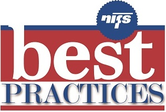In parts I and II of this blog series, I discussed why it’s important to cultivate a robust health and fitness program for residents in AL and memory-care environments and how to tap into your existing personnel to make that happen. In this final blog of the series, I’m going to cover a few additional resources for enhancing your fitness program.
 Consider how you can have a more inclusive environment in your IL fitness amenities: Can you establish criteria or resident support tools to invite AL or memory-care residents to use the existing exercise equipment in the fitness center or partake in group exercise classes with IL residents?
Consider how you can have a more inclusive environment in your IL fitness amenities: Can you establish criteria or resident support tools to invite AL or memory-care residents to use the existing exercise equipment in the fitness center or partake in group exercise classes with IL residents?- Develop a fitness space: Whether it is sectioning off a small corner of an existing activity or lounge space or building out an entire room for fitness equipment, having a dedicated fitness space or studio can be a great option for residents of all ability levels.
- Dedicate a variety of exercise equipment options: It’s time to put down the pool noodles and the beach balls. There are a number of small fitness equipment pieces on the market that can create new challenges and variety in group exercise classes.
- Consider qualified staff: The demand for quality fitness offerings for older adults has steadily increased in the past decade. Fortunately, there also more qualified fitness staff on the market who have experience catering to the unique needs of older adults. Working with a staffing partner like NIFS or hiring your own fitness professional to support your residents’ health and fitness needs even in a part-time capacity can be a significant enhancement to your program.
Through the course of this blog series, I’ve highlighted a variety of opportunities to enhance your fitness offerings for AL and memory-care residents. While having qualified fitness staff can be a difference maker, there is quite a bit that existing activities staff can do to improve exercise offerings. With that being said, you already have a full plate of responsibilities to serve your residents and pausing to develop a strategy for doing fitness better might be a challenge. If you’re ready to improve your fitness program for residents in assisted living and memory care environments, find out more about how we can help you.

 Consider how you can have a more inclusive environment in your IL fitness amenities
Consider how you can have a more inclusive environment in your IL fitness amenities
 During my morning commute a few months ago, I switched on the radio and caught the tail end of a brief
During my morning commute a few months ago, I switched on the radio and caught the tail end of a brief 
 Taking Care of Someone with Cognitive Loss
Taking Care of Someone with Cognitive Loss

